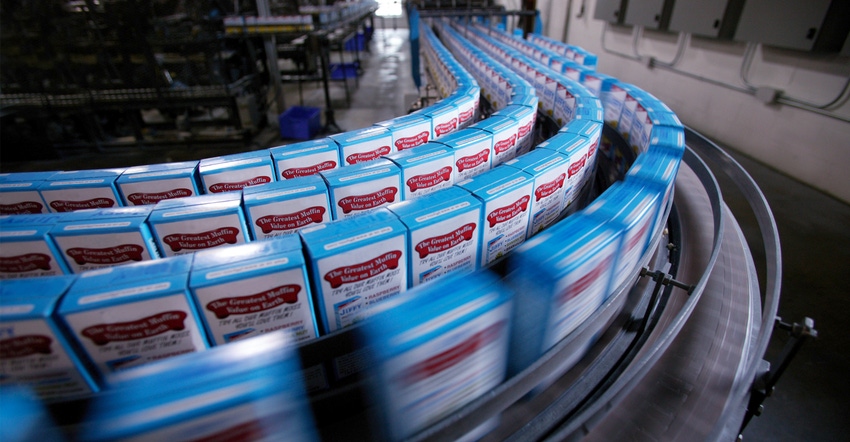Pros of owning a food manufacturing plant
There is much to consider before making the leap into manufacturing.
June 19, 2020

Manufacturing products is a monumental business decision and is not the best scenario for every brand. While there are definite advantages, there are also downsides, including costs, staffing considerations and added legal and safety responsibilities. Whether courting investors or financing the venture on your own, it’s critical for brands to understand both the benefits and challenges of running their own manufacturing facility from the outset.
For this two-part series, we talked with five industry experts to find out what business owners need to consider before opening their own factories. Below, we discuss the benefits.
Taking control
Typically, brands make the decision to open their own manufacturing facilities out of necessity. After all, if there is existing capacity in the market to produce your product at the right quality for the right price (and deliver the right value proposition on shelves), why would anyone take on the burden of production?
Sometimes, however, it’s necessary to produce your own goods, as in the case of healthy snack brand LesserEvil.
“We were able to differentiate ourselves in the marketplace by going outside of the parameters of what a co-packing solution could provide,” says president and CEO Charles Coristine. “We produced an organic product with unique ingredients like coconut oil, which our competitors who did not own their own facility could not do at the time. Manufacturing our own products allows us to produce a higher quality product at a competitive cost.”
Another major benefit of companies making their own products is the control factor. Owning your own factory means you are in charge of every aspect of the supply chain and output methodology. It opens up the ability to do short runs of limited-edition products and stock only the inventory brands need instead of qualifying for run minimums.
“You can decide what components are important to the brand or your morals, from sourcing, creation, packaging, innovation, down to treatment of employees and community impact, and then decide where to spend a little more and where to get lean,” says Jamba Dunn, CEO and founder of Rowdy Mermaid Kombucha.
For many producers, control of the manufacturing process has been especially important during the COVID-19 pandemic.
"We are particularly well-positioned in the midst of this crisis, as we aren’t beholden to the schedules of a contract manufacturer,” says Andrew Strife, chief financial and operating officer at LesserEvil. “Many brands who relied on contract manufacturing have been left without any product to sell because their contract manufacturers have shifted resources toward other customers. Having our own plant allows us to continue to stock supermarket shelves and fulfill e-commerce demands—some brands don’t have that ability.”
For Rowdy Mermaid Kombucha, manufacturing its own goods means the company can stay nimble and put workers first during the pandemic. Rather than lay off a single employee, the company shifted to a staggered schedule to address social distancing guidelines and focused on tasks such as inventory, warehouse repairs, painting and deep cleaning.
“This meant we were in the perfect position with a qualified production team once the orders began to roar back,” says Dunn. “We took this time to lean into innovation, generate our next flavor SKUs and flesh out a new lineup of products.”
Ability to innovate
Another advantage to brands owning their own manufacturing facility is the ability to innovate, for example, by experimenting with new ingredients or sustainable packaging.
“It’s difficult to innovate in your category without exposure to the manufacturing process,” says Dunn.
“From an innovation standpoint, having your own factory can be advantageous,” said Tom Spier, founder and managing partner of Boulder, Colorado-based BFG Partners. “Say you’re baking granola and you want to get into frozen food because you think that’s where the brand needs to go. Chances are your granola factory—or your supply chain for that matter—will not be very helpful for you. In that case, having a more nimble supply chain is helpful. Manufacturing control allows for close-in innovation such as a new flavor of granola, but an outsourced supply chain allows for innovation flexibility."
There’s no doubt that controlling the company’s manufacturing process has its advantages for brands, but it is not without its share of difficulties, too. We'll cover those next.
About the Author(s)
You May Also Like


